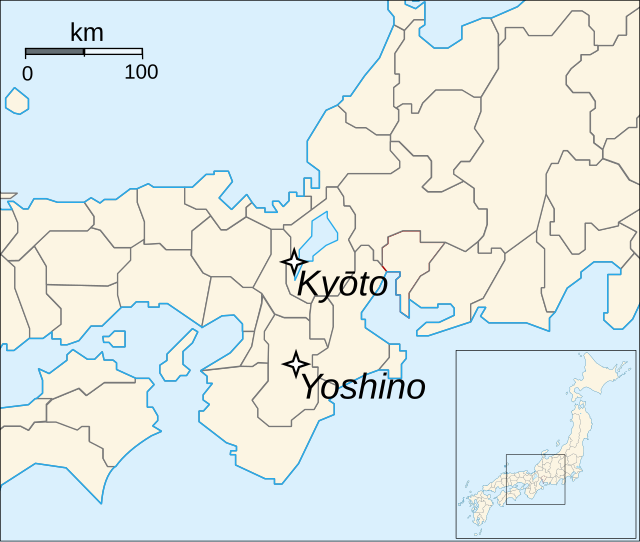Loading AI tools
Period of Japanese history (1362–1368) From Wikipedia, the free encyclopedia
Jōji (貞治) was a Japanese era name (年号, nengō, lit. year name) of the Northern Court during the Era of Northern and Southern Courts after Kōan and before Ōan. This period spanned the years from September 1362 through February 1368.[1] The emperor in Kyoto was Emperor Go-Kōgon (後光厳天皇, Go-Kōgon-tennō).[2] Go-Kōgon's Southern Court rival in Yoshino during this time-frame was Emperor Go-Murakami (後村上天皇, Go-Murakami-tennō).

During the Meiji period, an Imperial decree dated March 3, 1911 established that the legitimate reigning monarchs of this period were the direct descendants of Emperor Go-Daigo through Emperor Go-Murakami, whose Southern Court (南朝, nanchō) had been established in exile in Yoshino, near Nara.[3]
Until the end of the Edo period, the militarily superior pretender-Emperors supported by the Ashikaga shogunate had been mistakenly incorporated in Imperial chronologies despite the undisputed fact that the Imperial Regalia were not in their possession.[3]
This illegitimate Northern Court (北朝, hokuchō) had been established in Kyoto by Ashikaga Takauji.[3]
In this time frame, Shōhei (1346–1370) was a Southern Court equivalent nengō,
Seamless Wikipedia browsing. On steroids.
Every time you click a link to Wikipedia, Wiktionary or Wikiquote in your browser's search results, it will show the modern Wikiwand interface.
Wikiwand extension is a five stars, simple, with minimum permission required to keep your browsing private, safe and transparent.